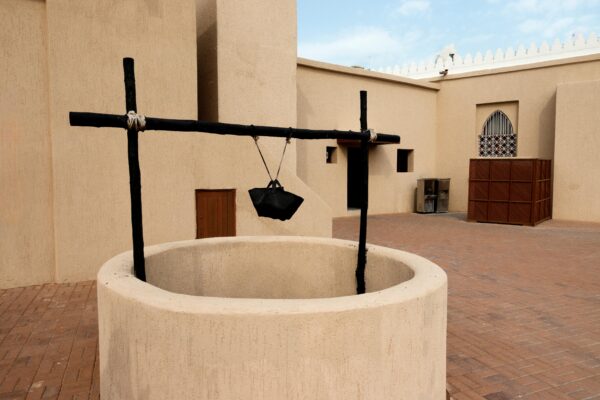
6 Wealth-Building Lessons from Khadijah (RA) Every Muslim Should Know
03 December 2025 8 min read


Adil Hussain
Head of Content
5 min read
Last updated on:
As we approach April 6th, the UK tax year is about to reset. For many, this is just another date on the calendar – but for the financially savvy (that’s you!), it’s a chance to make smart, halal-friendly moves that can help save you money and grow your wealth in line with Islamic values.
Whether you’re investing, giving zakat, planning for retirement, or managing a business, this is your annual opportunity to be proactive.
Here are 6 key actions UK Muslims should consider before the tax year ends.
An ISA (Individual Savings Account) is a type of account that allows you to save or invest without paying any tax on your returns. Every UK resident over 18 has an annual allowance – currently £20,000 – to put into ISAs.
This allowance resets every April 6th, and once it’s gone, it’s gone.
Even if you can’t max out the full £20,000, putting whatever you can afford into your ISA before April 6th means that allowance is locked in for this tax year. Once it resets, you can’t backdate unused amounts.
If you need inspiration for halal investments, check out our comparison page. Our sister company Cur8 Capital also has an ISA for muslim investors, which you can learn more about here.
Pension contributions don’t just grow your retirement pot – they also reduce your adjusted net income, which affects how much tax you pay today.
Take Fatima, who earns £65,000 a year and receives Child Benefit for her two children (worth around £2,200 per year).
Because her adjusted net income is over £60,000, she has to repay part of her Child Benefit via her tax return.
If Fatima makes a £5,000 pension contribution before April 6th, her adjusted net income drops to £60,000, allowing her to keep the full Child Benefit. On top of this, Fatima also receives tax relief on her pension contribution – lowering her overall tax bill.
So she’s winning in two ways:
✅ Reducing her immediate tax liability.
✅ Growing her pension in a halal way for retirement. (If you’re unsure if your pension is halal, you can check really easily by following this guide here.)
Ahmed earns £105,000 a year, meaning his Personal Allowance (the first £12,570 of tax-free income) starts tapering away.
By contributing £5,000 into his pension before April 6th, Ahmed reduces his adjusted net income to £100,000 and preserves his full Personal Allowance.
This saves him over £2,000 in income tax immediately, plus he benefits from tax relief on his pension contribution – boosting his halal retirement savings.
Every UK taxpayer has an annual pension allowance – up to £60,000 or 100% of your earnings (whichever is lower) – that resets on April 6th.
If you’re in a situation where you’re at risk of losing certain benefits, this could be a savvy move to protect your income – but take tailored tax advice before acting.
Giving sadaqah or zakat isn’t just spiritually rewarding – it can also be tax-efficient. Donations to registered UK charities before April 6th can reduce your taxable income through Gift Aid.
For every £100 you donate, the charity can claim an extra £25 from the government. And if you’re a higher-rate taxpayer, you could claim back additional tax relief through your tax return.
For example, if you’re a 40% taxpayer (earning more than £50,270), a £1,000 donation could see you claim back £250, while the charity receives £1,250 in total.
If you’re already planning to give, doing so before April 6th could be a smart way to reduce your tax bill while fulfilling your charitable goals.
By the way, if you’re looking for a meaningful place to give, check out our Zakat Fund (which accepts both zakat and sadaqah). It’s designed to support the most strategically impactful – and often overlooked – areas within the Muslim community. You can learn more here.
The capital gains tax (CGT) allowance is now just £3,000 – meaning you can make up to £3,000 of investment gains this tax year without paying tax on them.
If you’ve made profits from halal investments like equities or property funds, you might want to consider selling before April 6th to stay within this allowance.
Top tip: You could also move those profits into a Stocks & Shares ISA to shelter future gains from capital gains tax altogether.
For anyone investing regularly, this could be a smart way to lock in gains more tax-efficiently – but always check it fits with your broader investment plan.
If you’re self-employed or run a business, now’s the time to double-check your allowable expenses before the year closes. This could include home office costs, travel, equipment, and professional fees.
Claiming all eligible expenses reduces your taxable profit, and in turn, your overall tax bill.
For example, buying essential equipment or software before April 6th could reduce your profits for this year and free up more cash to reinvest or save.
If you’re running your own business, being proactive now could mean more money stays in your pocket – and less goes to HMRC. Of course, only purchase that which you actually need.
Parents can take advantage of tax-free savings for their children through Junior ISAs and Junior SIPPs, both of which reset annually on April 6th.
Because these contributions belong to your child, the money is no longer part of your estate for inheritance tax purposes. Over time, this could help reduce your overall IHT bill, while giving your children a head start on their financial journey.
However keep in mind that once the funds are in a Junior ISA or Junior SIPP, they legally belong to your child. A Junior ISA transfers to them fully at age 18 which means you lose control over how the money is used later.
So it’s important to also prepare your children with strong financial education to help them manage this responsibility wisely.
Look – this isn’t just about ticking boxes before April 6th.
This is about being smarter and more intentional with the money Allah has entrusted to you. Whether that’s shielding your investments from tax, holding onto benefits you’re entitled to, or putting your family on stronger financial footing, these are simple steps that can have a big impact.
So if there’s one thing to take away here, it’s this: act now while you’ve still got time. April 6th is coming fast, and a few sharp moves today could set you up beautifully for the new tax year – and for the long game.
If you need help with investing according to Islamic principles, we have designed a free halal investment checklist which you can access here.

03 December 2025 8 min read

26 November 2025 6 min read

13 August 2025 12 min read
Leave a Reply